-
 bitcoin
bitcoin $87959.907984 USD
1.34% -
 ethereum
ethereum $2920.497338 USD
3.04% -
 tether
tether $0.999775 USD
0.00% -
 xrp
xrp $2.237324 USD
8.12% -
 bnb
bnb $860.243768 USD
0.90% -
 solana
solana $138.089498 USD
5.43% -
 usd-coin
usd-coin $0.999807 USD
0.01% -
 tron
tron $0.272801 USD
-1.53% -
 dogecoin
dogecoin $0.150904 USD
2.96% -
 cardano
cardano $0.421635 USD
1.97% -
 hyperliquid
hyperliquid $32.152445 USD
2.23% -
 bitcoin-cash
bitcoin-cash $533.301069 USD
-1.94% -
 chainlink
chainlink $12.953417 USD
2.68% -
 unus-sed-leo
unus-sed-leo $9.535951 USD
0.73% -
 zcash
zcash $521.483386 USD
-2.87%
How to play NFT mining? Project screening and return rate evaluation
NFT mining lets users earn rewards by staking or locking NFTs on blockchain platforms, offering returns through tokens, exclusive NFTs, or stablecoins.
Jun 19, 2025 at 10:42 pm
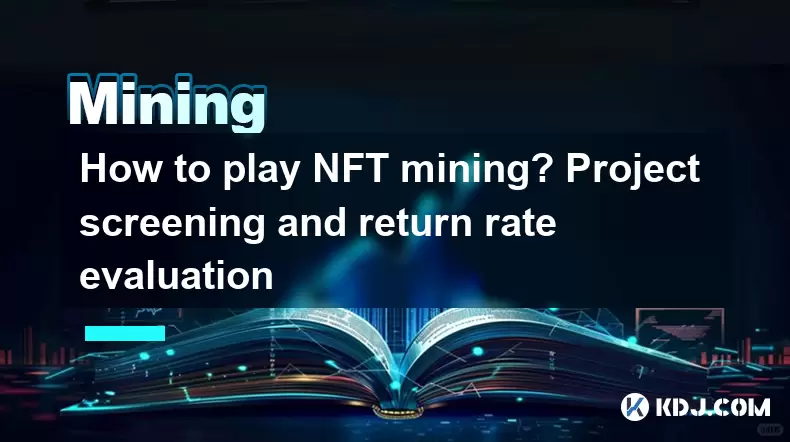
What is NFT Mining?
NFT mining refers to the process of earning rewards through staking, holding, or participating in activities related to non-fungible tokens (NFTs). Unlike traditional cryptocurrency mining that requires computational power, NFT mining typically involves locking up digital assets to earn tokens or other NFTs. Many blockchain-based platforms and games have adopted this model to incentivize user participation and liquidity provision.
The core idea behind NFT mining is similar to yield farming in DeFi: users deposit their NFTs or tokens into a platform, and in return, they receive rewards based on the rules set by the project developers. These rewards can be in the form of governance tokens, exclusive NFTs, or even fiat-pegged stablecoins.
How Does NFT Mining Work?
In most cases, NFT mining operates within decentralized applications (dApps) that are built on top of blockchains like Ethereum, Binance Smart Chain, or Solana. The steps involved usually include:
- Connecting a wallet: Users must connect their crypto wallets such as MetaMask, Trust Wallet, or Phantom.
- Selecting an NFT: Some platforms allow only specific collections to be staked for mining.
- Staking or locking the NFT: Once selected, the NFT is locked in a smart contract for a certain period.
- Earning rewards: Rewards accrue over time based on the project’s reward mechanism.
Some platforms offer auto-compounding features, where earned tokens are automatically reinvested to boost returns. Others may require manual claiming of rewards at regular intervals.
Key Factors in Project Screening
Before diving into any NFT mining venture, it’s crucial to conduct thorough research on the project. Here are some essential criteria to consider:
- Team transparency: Check whether the team members are publicly identifiable and experienced in blockchain development.
- Smart contract audits: Projects with verified and audited smart contracts reduce the risk of rug pulls or exploits.
- Community engagement: Active communities on Discord, Telegram, and Twitter often indicate genuine interest and support.
- Tokenomics structure: Analyze how token emissions are structured — a high inflation rate might dilute your earnings over time.
- Partnerships and integrations: Collaborations with established platforms or protocols add credibility to the project.
It's also wise to monitor social media channels for updates and red flags like sudden changes in roadmap or suspicious behavior from developers.
Evaluating Return Rates in NFT Mining
Return on investment (ROI) in NFT mining can vary widely depending on several variables. To evaluate potential returns accurately, consider the following:
- Daily reward rate: Determine how many tokens you can earn per day by staking your NFT.
- Token price volatility: High volatility can affect the real-world value of your rewards significantly.
- Total staked amount: Larger pools might offer lower APR due to increased competition among participants.
- Gas fees: Frequent claiming or unstaking could eat into your profits, especially on high-fee networks like Ethereum.
- Reward lock-up periods: Some projects impose lock-in durations before you can withdraw or claim rewards.
Using tools like APR calculators or tracking platforms like DappRadar and DefiLlama can help estimate potential returns more precisely.
Common Risks in NFT Mining
While NFT mining can be profitable, it comes with its own set of risks. Being aware of these dangers can help you avoid costly mistakes:
- Impermanent loss: Similar to DeFi, if the value of the NFT or paired token fluctuates significantly, you might end up losing money compared to simply holding.
- Smart contract vulnerabilities: Even audited contracts can have undiscovered flaws that hackers might exploit.
- Market manipulation: Pump-and-dump schemes can cause drastic drops in token prices shortly after launch.
- Liquidity issues: If the platform doesn’t maintain enough liquidity, you may face difficulties in withdrawing or selling your rewards.
- Regulatory uncertainty: Governments around the world are still figuring out how to regulate NFTs and related financial products.
Due diligence and caution are critical when entering the NFT mining space.
Frequently Asked Questions
Can I lose money in NFT mining?Yes, due to factors like market volatility, impermanent loss, and potential smart contract exploits, users can indeed incur losses while participating in NFT mining.
Is NFT mining legal?The legality depends on your jurisdiction. While owning and staking NFTs isn't illegal in most countries, regulatory frameworks regarding income from such activities vary widely.
Do I need rare NFTs to mine?Not always. Some platforms accept common NFTs or even allow token-only staking. However, rarer NFTs often provide higher reward multipliers.
How do I know if a mining project is a scam?Watch for signs like anonymous teams, lack of audit reports, promises of unrealistic returns, and negative community feedback. Always verify code and read reviews from trusted sources.
Disclaimer:info@kdj.com
The information provided is not trading advice. kdj.com does not assume any responsibility for any investments made based on the information provided in this article. Cryptocurrencies are highly volatile and it is highly recommended that you invest with caution after thorough research!
If you believe that the content used on this website infringes your copyright, please contact us immediately (info@kdj.com) and we will delete it promptly.
- Bitcoin's Rocky Road: Inflation Surges, Rate Cut Hopes Fade, and the Digital Gold Debate Heats Up
- 2026-02-01 09:40:02
- Bitcoin Shows Cheaper Data Signals, Analysts Eyeing Gold Rotation
- 2026-02-01 07:40:02
- Bitcoin's Latest Tumble: Is This the Ultimate 'Buy the Dip' Signal for Crypto?
- 2026-02-01 07:35:01
- Big Apple Crypto Blues: Bitcoin and Ethereum Stumble as $500 Billion Vanishes Amid Macroeconomic Whirlwind
- 2026-02-01 07:35:01
- Michael Wrubel Crowns IPO Genie as the Next Big Presale: A New Era for Early-Stage Investments Hits the Blockchain
- 2026-02-01 07:30:02
- XRP, Ripple, Support Level: Navigating the Urban Jungle of Crypto Volatility
- 2026-02-01 06:35:01
Related knowledge
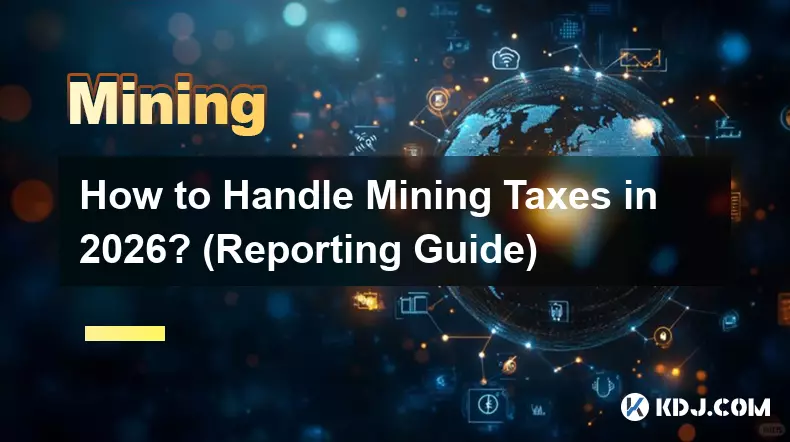
How to Handle Mining Taxes in 2026? (Reporting Guide)
Feb 01,2026 at 01:39am
Tax Classification of Mining Rewards1. Cryptocurrency mining rewards are treated as ordinary income at the fair market value on the date of receipt. 2...
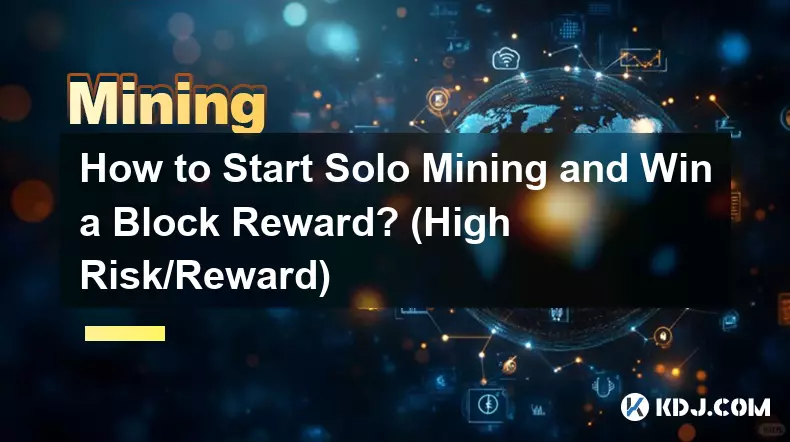
How to Start Solo Mining and Win a Block Reward? (High Risk/Reward)
Feb 01,2026 at 06:40am
Understanding Solo Mining Mechanics1. Solo mining means operating a full node and attempting to solve cryptographic puzzles independently without join...
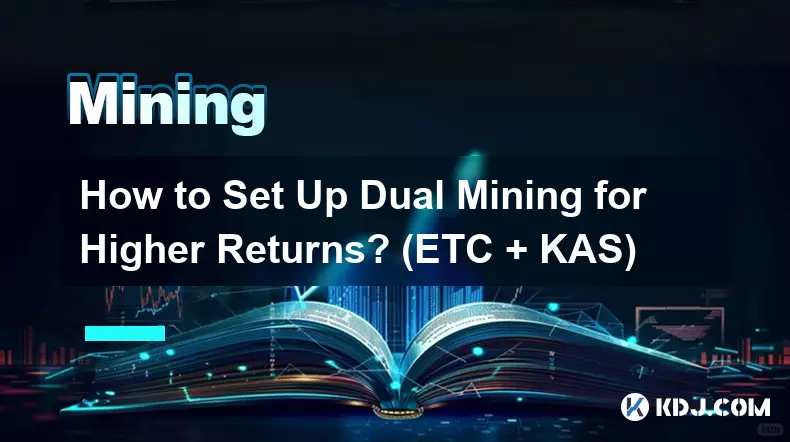
How to Set Up Dual Mining for Higher Returns? (ETC + KAS)
Feb 01,2026 at 02:19am
Dual Mining Fundamentals1. Dual mining allows a single GPU to simultaneously contribute computational power to two different blockchains using compati...
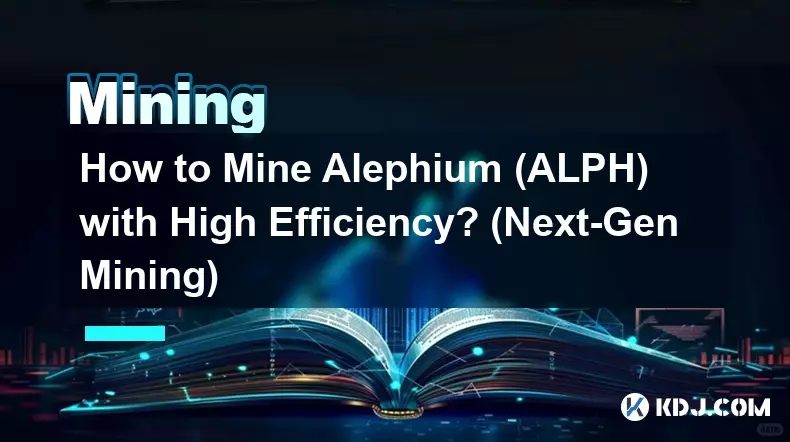
How to Mine Alephium (ALPH) with High Efficiency? (Next-Gen Mining)
Feb 01,2026 at 05:39am
Understanding Alephium's Unique Consensus Mechanism1. Alephium employs a sharded Proof-of-Work (PoW) consensus called BlockDAG with Recursive Sharding...
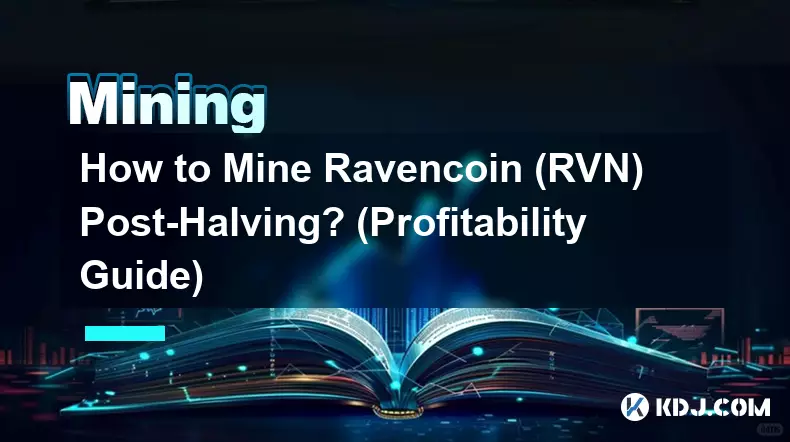
How to Mine Ravencoin (RVN) Post-Halving? (Profitability Guide)
Feb 01,2026 at 07:59am
Understanding Ravencoin Mining Mechanics1. Ravencoin operates on a proof-of-work consensus model using the KAWPOW algorithm, specifically designed to ...
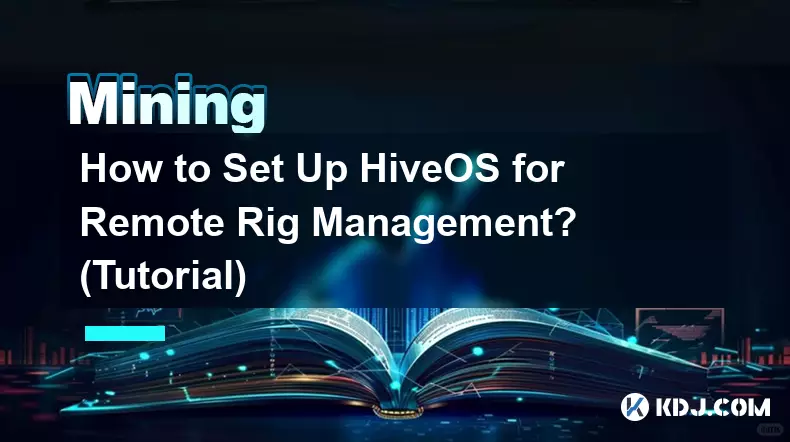
How to Set Up HiveOS for Remote Rig Management? (Tutorial)
Feb 01,2026 at 12:39am
Understanding HiveOS Fundamentals1. HiveOS is a Linux-based operating system specifically engineered for GPU mining rigs, offering lightweight perform...

How to Handle Mining Taxes in 2026? (Reporting Guide)
Feb 01,2026 at 01:39am
Tax Classification of Mining Rewards1. Cryptocurrency mining rewards are treated as ordinary income at the fair market value on the date of receipt. 2...

How to Start Solo Mining and Win a Block Reward? (High Risk/Reward)
Feb 01,2026 at 06:40am
Understanding Solo Mining Mechanics1. Solo mining means operating a full node and attempting to solve cryptographic puzzles independently without join...

How to Set Up Dual Mining for Higher Returns? (ETC + KAS)
Feb 01,2026 at 02:19am
Dual Mining Fundamentals1. Dual mining allows a single GPU to simultaneously contribute computational power to two different blockchains using compati...

How to Mine Alephium (ALPH) with High Efficiency? (Next-Gen Mining)
Feb 01,2026 at 05:39am
Understanding Alephium's Unique Consensus Mechanism1. Alephium employs a sharded Proof-of-Work (PoW) consensus called BlockDAG with Recursive Sharding...

How to Mine Ravencoin (RVN) Post-Halving? (Profitability Guide)
Feb 01,2026 at 07:59am
Understanding Ravencoin Mining Mechanics1. Ravencoin operates on a proof-of-work consensus model using the KAWPOW algorithm, specifically designed to ...

How to Set Up HiveOS for Remote Rig Management? (Tutorial)
Feb 01,2026 at 12:39am
Understanding HiveOS Fundamentals1. HiveOS is a Linux-based operating system specifically engineered for GPU mining rigs, offering lightweight perform...
See all articles





















![THIS IS THE HARDEST COIN TO GET [POLY DASH] THIS IS THE HARDEST COIN TO GET [POLY DASH]](/uploads/2026/01/31/cryptocurrencies-news/videos/origin_697e0319ee56d_image_500_375.webp)




















































